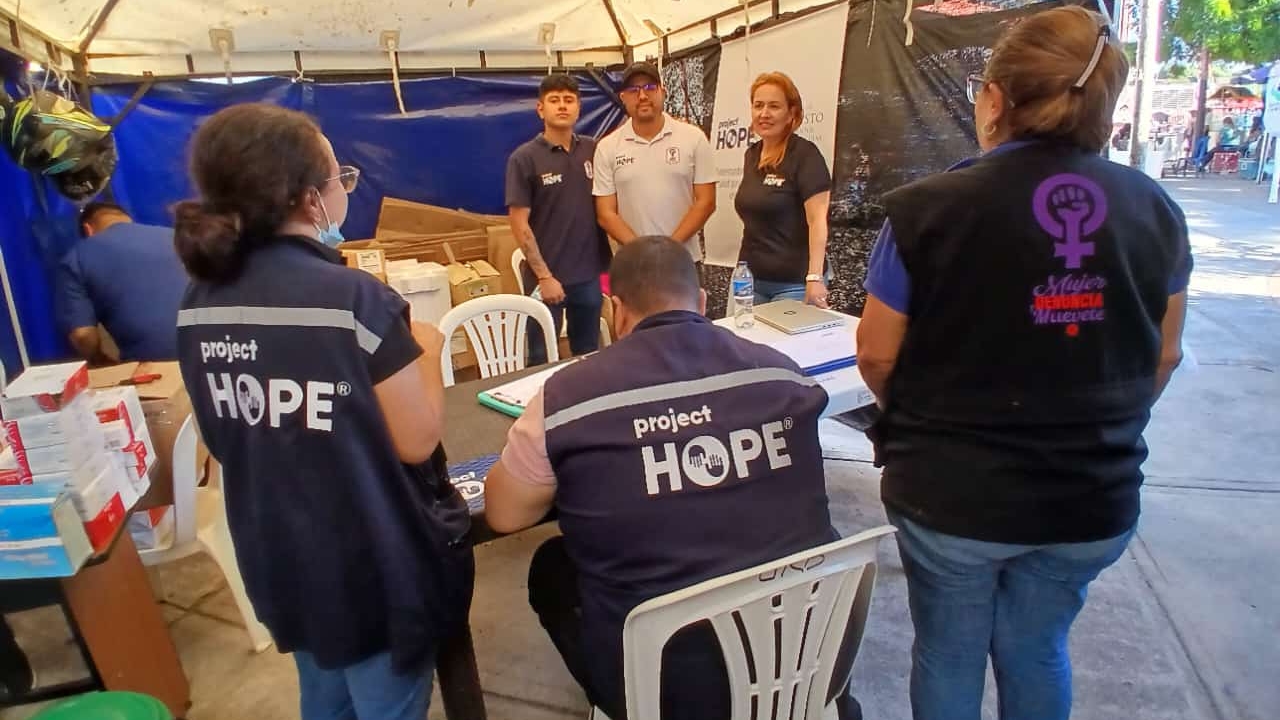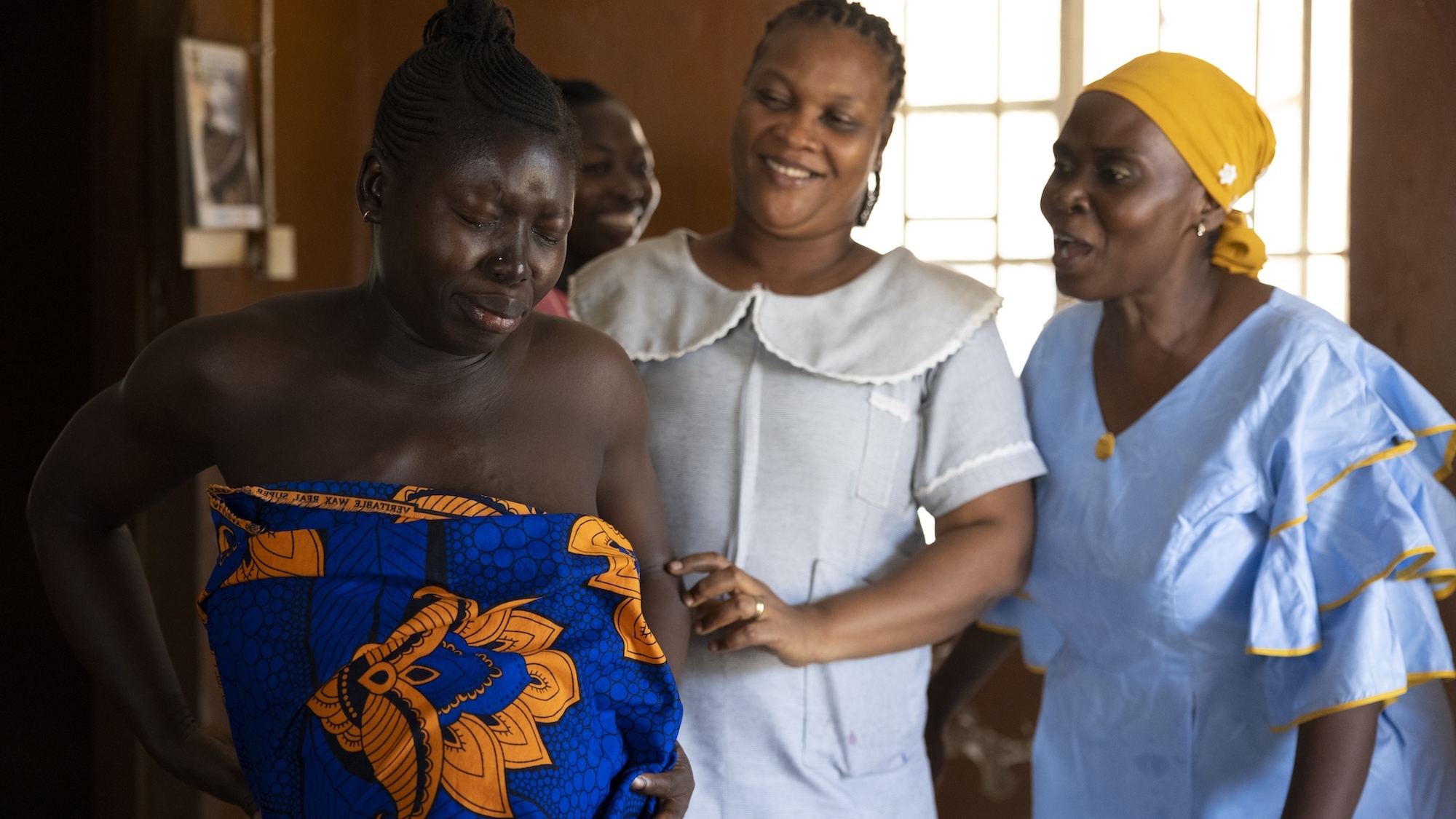COVID-19 Pandemic: What You Need To Know
Project HOPE has mounted a global response to COVID-19, focusing on equipping frontline health care workers with personal protective equipment and training them with the skills they need. Learn more about how you can help.
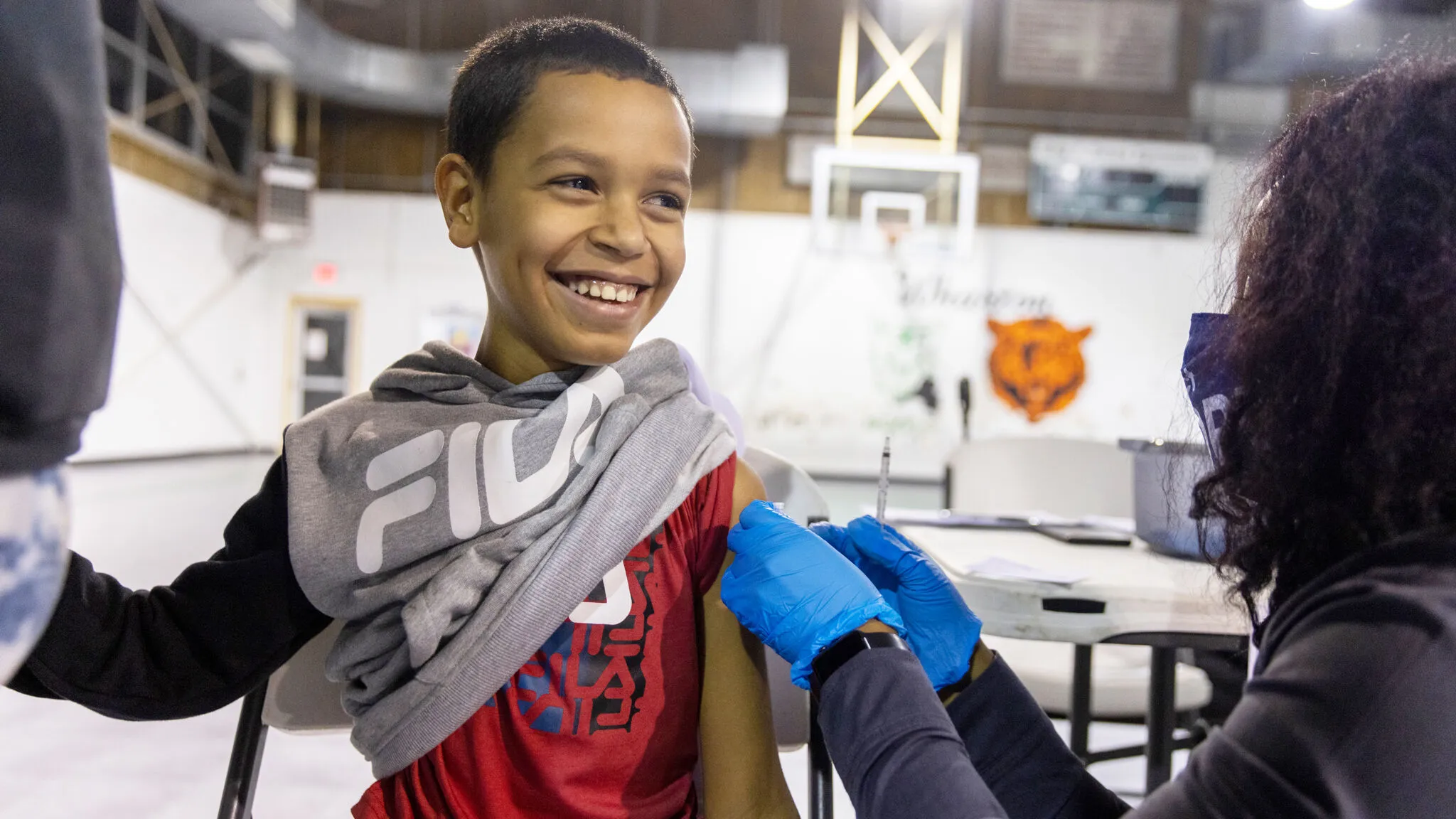
The Power of Urgent Action
In late 2019 and early 2020 — before most of the world even knew the word COVID-19 — Project HOPE’s team of global health experts and emergency response professionals were hard at work preparing our staff and partners to respond when health systems around the world became overwhelmed by the virus.
Our teams implemented a highly coordinated, whole-of-organization response to COVID-19, including regional partnerships to monitor the spread of the virus, the delivery of lifesaving protective gear to the hardest hit regions, deployments of medical volunteers, trainings to protect the mental health of frontline health workers, targeted vaccine outreach to communities without regular access to primary health services, and working with partners to ensure the continuity of health services around the world.
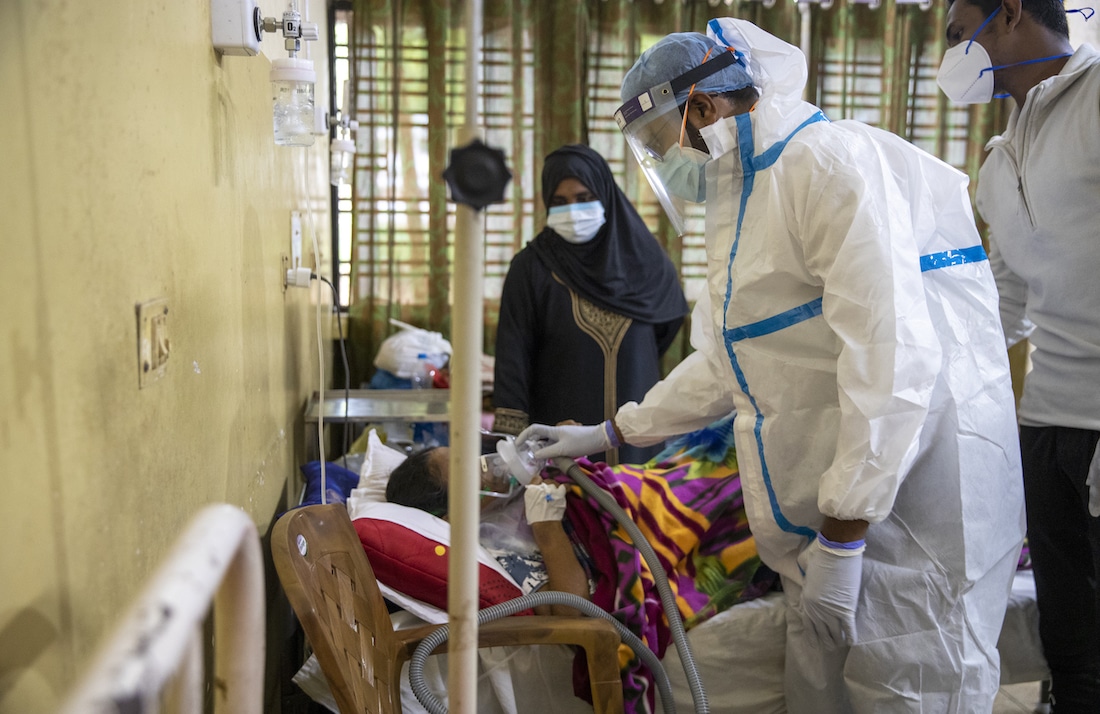
Project HOPE’s team mobilized quickly to respond to the needs of health workers, communities, and health systems impacted by the pandemic. Together, with the support of our donors and partners:
- Project HOPE delivered PPE to overworked health workers in 20 countries, including India, Nepal, Lebanon, Honduras, Colombia, Navajo Nation, and the United States (Arizona, California, Illinois, Louisiana, Maryland, Massachusetts, Michigan, New Jersey, New Mexico, New York, Pennsylvania, Puerto Rico, and Texas).
- Through our volunteer teams, we provided surge support in health systems that brought care to thousands of patients in ICUs, surge units, and COVID-19 testing units in Texas, the Navajo Nation, Illinois, and Maryland.
- Project HOPE was one of the only international relief organizations responding on the ground in China at the beginning of the COVID-19 outbreak, providing millions of facemasks, isolation gowns, protective coveralls, exam gloves, and other protective gear. Some of the first nurses to treat the virus in China were trained at the HOPE School of Nursing in Wuhan. Project HOPE also provided lifesaving medical equipment to support patient care and treatment, including disinfection machines, medical air compressors, and ventilators.
- We launched online trainings for doctors and nurses to become Master Trainers in infection prevention and control. The trainings are now available for free on DisasterReady.org.
- We improved access to tens of thousands of COVID-19 vaccines via free and charitable clinics across five states through a program funded by the U.S. Health Resources and Services Administration to help thousands of people in underserved communities access the vaccine, including refugees and uninsured persons.
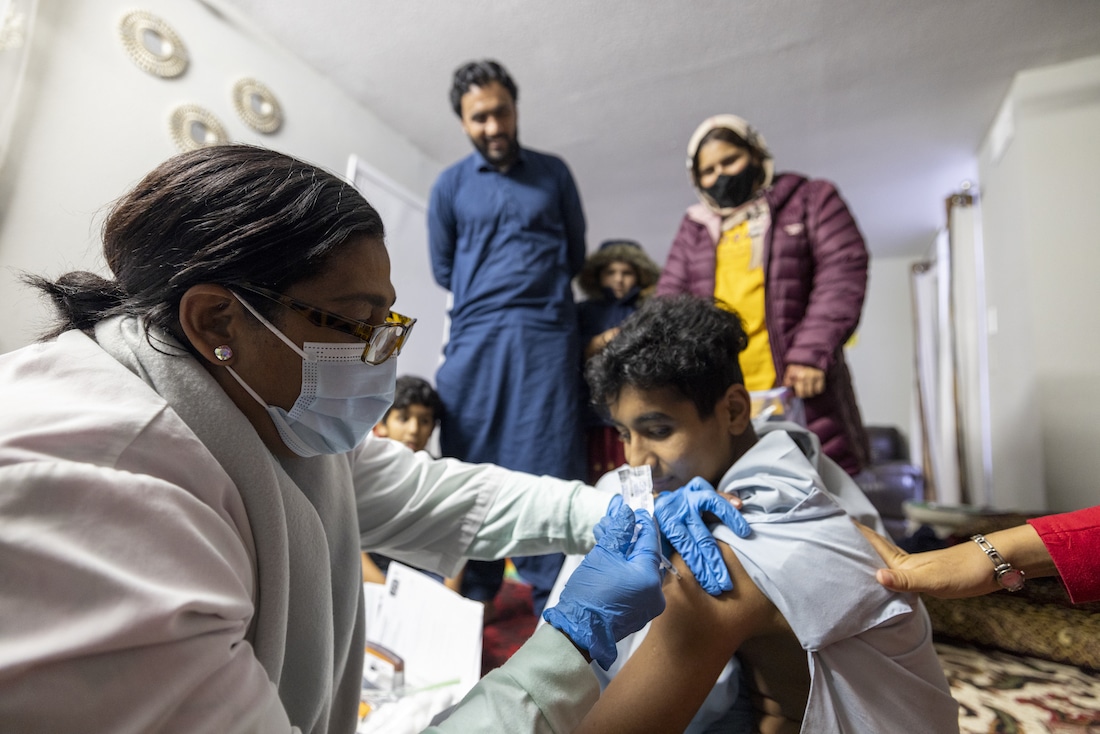
Strengthening Health Systems for the Long Term
In our response to COVID-19, our team learned valuable lessons that have expanded our capacity to respond strategically to future health and humanitarian crises. As emergency responders and global health experts, we know how to deliver lifesaving aid, tackle complex global health challenges like infectious diseases, and equip health workers and their communities with the tools they need to create impact that lasts.
Despite the supply chain difficulties in the early stages of the pandemic, our capable logistics and emergency response teams were able to adapt, work with partners, and ultimately deliver more than 31 million pieces of PPE across 20 countries.
As misinformation spread and vaccine confidence became a critical global health challenge, Project HOPE coordinated with regional partnerships to share information, reached 381,000 people with COVID-19 education, and equipped community health workers with best practices for vaccine outreach in medically underserved communities.
In addition, Project HOPE has continued to prioritize infection prevention and control in all programs, including in Illinois, where Project HOPE has worked with long-term care facilities to reduce respiratory infections, improve access to PPE, and strengthen the capacity of health workers.
The stress of the pandemic and its challenges has taken a heavy toll on health workers around the world. Many health workers are experiencing increased rates of anxiety, depression, and insomnia. To meet the needs of health workers and prevent health systems from collapsing, Project HOPE launched mental health and resiliency trainings for health workers. Our team then partnered with local organizations to bring this important resource to more than 100,000 health care workers in 41 countries.
The impact of this work has gone beyond the pandemic. In Sudan — a country experiencing prolonged conflict and major humanitarian crises — Project HOPE’s mental health and resiliency trainings are helping health workers protect their psychological well-being. Our implementing partner in Sudan has received feedback from Sudanese health workers who are continuing to provide care amidst unimaginable violence and strife that “this training was one of the most beneficial trainings — it has helped them strengthen their coping mechanisms and enhance their psychological well-being during this difficult time.”
Project HOPE believes that mental health is an integral part of primary health, and that global health programs must incorporate the principles of mental health into our global health work to achieve the best outcomes. As such, our teams are expanding our mental health programming and embedding mental health work in our programs focused on reducing the impact of infectious and noncommunicable diseases. In Cambodia, Indonesia, and the Philippines, Project HOPE is implementing a framework for tuberculosis (TB) treatment that incorporates mental health services to improve the health of people living with TB.
Project HOPE is also engaging in policy advocacy on global health issues to complement our important global health and humanitarian work. Project HOPE regularly advocates for locally led development, which places the power of development funding and other resources directly in the hands of local partners on the ground in affected communities.
Our teams are passionate about maximizing the impact of our work and we believe that bringing local voices in as experts improves global health development work. Through our COVID-19 response, and our response to health and humanitarian crises during the worst days of the COVID-19 pandemic, Project HOPE has formed lasting relationships with health workers and local partners around the world in every region. We seek to build upon these relationships and prioritize locally led development and local capacity strengthening as we respond to health crises, humanitarian emergencies, and infectious threats in the future.

